 credit to Pixabay credit to Pixabay Stress in the United States is a pervasive and complex issue, affecting millions across diverse demographics. It’s believed more than a quarter of the population suffers from stress to the point they cannot function. Up to 76% of adults report experiencing physical symptoms of stress, such as severe migraines, fatigue, a feeling of anxiousness, or changing sleeping habits. High-pressure work environments, economic uncertainties, and societal expectations contribute to elevated stress levels. Common stressors include finances, work, and health concerns. The fast-paced lifestyle, exacerbated by technology, adds to the challenge. Chronic stress has profound health implications, contributing to conditions like heart disease and mental health disorders. In the relentless pursuit of success and fulfillment, we often find ourselves entangled in the web of stress, adversely affecting both our mental and physical well-being. The quest for harmony requires a holistic approach that acknowledges the intricate connection between the mind and body. Here, we explore six practical suggestions, each contributing to the reduction of stress and the cultivation of a balanced and harmonious existence. 1. Mindful Breathing and Meditation: Cultivating Inner Calm In the chaos of our daily lives, the simplicity of mindful breathing and meditation offers a powerful antidote to stress. Allocate a few moments each day to sit in quiet contemplation, focusing on your breath. Let thoughts flow without judgment, allowing your mind to settle into a state of tranquility. Research suggests that such mindfulness practices activate the body's relaxation response, decreasing cortisol levels—the hormone associated with stress. Apps like Headspace and Calm provide accessible guided meditation sessions, making it easier for beginners to embark on this journey toward inner calm. 2. Nature Immersion: Finding Serenity Outdoors Nature has an innate ability to soothe the mind and rejuvenate the spirit. Amidst the concrete jungles, make a conscious effort to immerse yourself in natural surroundings. Whether it's a stroll in a nearby park, a hike in the woods, or simply sitting by a body of water, nature provides a sanctuary for stress relief. Studies have shown that exposure to green spaces can significantly reduce stress levels and enhance overall well-being. The Japanese practice of Shinrin-yoku, or forest bathing, emphasizes the therapeutic effects of immersing oneself in nature, promoting a sense of calm and equilibrium. 3. Physical Exercise: Elevating the Mind and Body Regular physical exercise stands as a stalwart ally in the battle against stress. Engaging in activities that elevate your heart rate not only contributes to physical well-being but also releases endorphins—the body's natural mood enhancers. Whether it's a brisk walk, a yoga session, or a high-intensity workout, find an activity that resonates with you. Aim for at least 30 minutes of moderate exercise most days of the week. The benefits extend beyond the physical, encompassing mental resilience and increased stress resistance. Exercise becomes a potent tool in fostering a harmonious relationship between the mind and body. 4. Balanced Nutrition: Nourishing the Body, Calming the Mind The link between diet and stress is undeniable. Opting for a balanced and nutritious diet is pivotal for overall well-being. Incorporate a variety of whole foods, ensuring an adequate intake of vitamins and minerals. Foods rich in omega-3 fatty acids, such as fatty fish, contribute to mood stabilization. Avoid the pitfalls of excessive caffeine and refined sugars, which can lead to energy spikes and crashes, exacerbating stress. Hydration plays a crucial role; maintaining adequate water intake supports cognitive function and aids in stress management. 5. Cultivating a Clear Mind with Ergonomic Accessories In the contemporary era, where many of us spend a significant portion of our day working at desks, the importance of a clear mind cannot be overstated. Ergonomic accessories play a pivotal role in promoting mental clarity and reducing physical strain, particularly during work hours. Investing in ergonomic accessories like chairs, adjustable desks, and proper lighting creates a conducive workspace. A clutter-free and well-organized environment fosters focus and reduces mental clutter. Tools like noise-canceling headphones can further enhance concentration, promoting a stress-free work environment. Recognizing the link between physical comfort and mental clarity, ergonomic considerations become integral to overall well-being. 6. Social Connection: Nurturing Relationships for Emotional Well-Being Human connection is a fundamental thread in the intricate tapestry of stress reduction. Nurture relationships with friends and family, recognizing the emotional support they provide. Engage in meaningful conversations, share experiences, and create moments of joy together. Studies underscore the role of social connection in buffering the effects of stress. Join clubs, attend social events, or participate in group activities to foster a sense of belonging and camaraderie. Building and maintaining meaningful connections contribute significantly to emotional well-being, creating a harmonious balance in the broader context of life. Conclusion In conclusion, the pursuit of harmony for the mind and body demands a comprehensive approach. Mindful breathing and meditation, nature immersion, physical exercise, balanced nutrition, ergonomic considerations, and social connections collectively contribute to stress reduction. Each element, while distinct, weaves seamlessly into the fabric of a balanced and harmonious existence. As you embark on this journey, recognize the interconnectedness of the mind and body. Embrace these practices with intention and consistency, allowing the symphony of mindful living to drown out the dissonance of stress. In cultivating these habits, you pave the way for a life marked by equilibrium, resilience, and an enduring sense of well-being. Written by Lana Preston for allwayswell.com 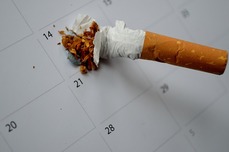 NADA, which stands for the National Acupuncture Detoxification Association, was established in 1985 to promote the NADA protocol acupuncture treatment for addiction. The non-profit organization promotes advocacy and the use of a non-verbal, pharmaceutical free approach to behavioral health. The protocol uses five specific acupuncture points on the ear to treat addiction and to be an alternative to methadone. The NADA protocol differs slightly from other acupuncture treatment. The treatment usually involves needling in both of the patient’s ears for about 30 minutes. The treatment is done in a group setting for support for those being treated as they recover from addiction. The NADA protocol is about more than just acupuncture, but really about being a step in a sometimes long road to recovery. Patients are treated in a quiet, peaceful room. Each patient gets the exact same treatment. Group treatment is emphasized to address feelings of denial and create an open, safe environment. Those in recovery from addiction commonly report feelings of an improved sense of purpose and well being after treatment. Acupuncture is known for its relaxing benefits, which is especially helpful for those in recovery. Patients are able to destress in their treatment process to help them continue to make progress. Most common effects of the NADA protocol include:
There are a lot of factors that come to play in addiction treatment. Along with counseling, support groups and/or 12-step programs, the NADA protocol can help make recovery easier and more successful. For more information about NADA go to: http://www.acudetox.com/ 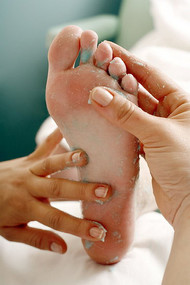 About 19 million American adults suffer from depression and most find their current treatment options ineffective along with a slew of unwanted side effects. Many who are prescribed antidepressants find that the medication only masks the problem, and does not cure it. However there are alternative treatments that have been proven effective without harmful side effects. Massage Therapy: Massage therapy is not just beneficial for your body physically, but mentally as well. Massage is a safe technique that has been used for thousands of years that can help calm and relax the mind. By relieving muscle tension and increasing blood flow, the body’s heart rate can lower and promote stress relief. When one is less stressed, depression can be improved. For those suffering with depression, seeing a massage therapist regularly can help increase mood and decrease feelings of sadness and anxiety. Acupuncture: Acupuncture has been proven to be extremely beneficial for those dealing with depression. By targeting different points on the body, acupuncture works to release any blockages in the body’s energy flow and return the body and state of mind back to balance. When the body is in balance, we tend to feel physically, as well as mentally, healthy. Yoga & Meditation: When practiced regularly, yoga and meditation have a profound effect on decreasing stress and boosting mood. Through deep breathing and poses, these practices help focus and clear the head and lower heart rate, which in turn can decrease stress levels and put thoughts and mood in a better place. Depression is not something that is easy to deal with, nor is it something you have to go through alone. Know your alternative treatment options and begin the road to better health, for the mind and body. Sources: http://bit.ly/1VQA0mC, http://bit.ly/1KbgLvE 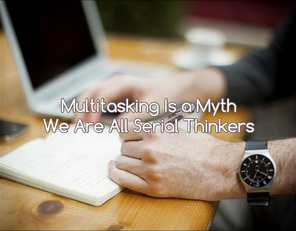 I love my family to pieces, but this week I had one of those days where I just felt like I was running and running and running without a break all day. The kids, my business, my mom, cooking, cleaning, bills, dogs eating and destroying things they aren't supposed to - have you had a day like that recently? And have you ever finished a day like that and just felt like you can't wind down? If so, I can relate. Luckily, I have some amazing Chinese Medicine tools at my disposal for dealing with the aftermath of days like this (and when I'm in my right state of mind, the during!) because chronic stress without a reprieve is less than ideal for your health. Think about it this way - what do you think would happen if you kept your car in park and the engine revving at 65 miles per hour? You guessed it—after a short time your car would break down. If you were lucky, a simple tune-up would fix the problem. If not, the engine might need to be replaced entirely. Chronic stress without a recovery period is a revving engine that, if left unchecked, can wear out the body and mind. Stress in our professional, personal, financial and social lives can lead to a variety of symptoms and signs of ill health. Stress increases our body’s production of cortisol and adrenaline. These body chemicals help activate the “fight or flight” response, a normal reaction that is designed to prepare the body to flee danger or fight an attacker. Unfortunately, many modern stressors are chronic and end up activating the “fight or flight” response for weeks, months, or years at a time. This long-term activation of the body’s stress-response system can wear down the body and mind, setting the stage for illness and disease. The good news is that acupuncture and Chinese medicine can be extremely helpful in reducing the symptoms, signs and effects of stress. In fact, treating and learning to manage stress and the aftermath of stress is a specialty in my practice, and I've helped hundreds of patients learn what to do to to decrease stress and improve health over the past decade. Some of the ways we can accomplish this include: 1) A customized Chinese herbal prescription to help restore internal health and balance, thus “slowing the engine down.” 2) Safe, gentle and effective acupuncture treatments to help “turn off” the fight or flight response and can enable you to feel calmer and sleep more soundly. 3) Suggestions for a healthy lifestyle, including proper nutrition, meditation, rest and exercise, towards enabling you to maintain health over the long-term. One of the unique attributes of Chinese medicine is its holistic approach to health and well-being. Instead of masking, or only addressing a few symptoms and signs related to stress, an acupuncturist cares for the whole person, body and mind. Stop revving your engine! If you or someone you know is experiencing stress, feel free to give me a call. For thousands of years acupuncture has helped millions of people cool their engines before they burned out and I've made it a mission of my practice to help people like you Be Well and Stay Well in every way despite the high stress times our modern world subjects us to day to day. So if you're ready to downshift to a lower gear with Chinese Medicine as your guide, please book in for an appointment or consultation today. It would be my true joy and pleasure to help you! ~Rebecca Coherence. If you haven’t heard this word the context of stress before that’s okay, its really just a fancy way to say “mindful and connected.” When you feel stressed out, coherence a goal to strive for; its that place where your mind and your heart and your body are aligned and you feel it. You feel present, centered, aware and you move through any given moment with conscious purpose. Physiologically, coherence can be recognized by a calm nervous system, low (or lowering) stress hormones and an even heart rhythm. Stress disrupts coherence and engenders the opposite — a hyperactive nervous system, stress hormone (cortisol) release, an uneven heart rhythm — and the effects of stress on the mind and body can be widespread including:
5 Practical Tips for Stress Management You Can Implement TodayHow to best manage stress in your life depends on your individual needs, but here are 5 relatively universal tips that can help reduce stress and the effects of stress on your life.
Acupuncture for Stress Management - Proven Stress ReliefIn Chinese Medicine stress has a specific energetic pattern that primarily affects the Liver meridian. Over time and with increased severity, stress can affect the Qi of Heart and Spleen as well and at each level, different symptoms present themselves. With 3,000 years of clinical data behind it, Chinese Medicine - with Acupuncture as a primary treatment modality - has proven techniques for moving Qi and reducing stress in the body. In an exciting twist of events, western research is actually catching on to this fact! A study published in the Journal of Endocrinology gained press in 2013 explored the biological mechanisms involved in acupuncture’s stress-relieving abilities. They discovered that acupuncture actually reduces stress hormones in the blood stream meaning that acupuncture can actually reduce stress on a molecular level! The research showed that acupuncture can work on both the short term and long term, chronic stress cascade in the body lending credibility to the use of acupuncture for both acute and long term stress reduction. A Parting Note on How to Make Stress Your FriendI hope you find the tips above useful and, if you are looking down the barrel of a new high stress time or struggling to manage stress in your life in general, please consider getting some acupuncture treatment. It works! And now there is research to prove it. Neat, huh? I leave you with my favorite TED talk on making stress your friend - the central message here is that stress does serve a purpose in your body, and being stressed about stress is actually worse than dealing with stress itself. Does that make stress management unimportant? Certainly not, prolonged stress is not great for you, but dealing with the stress itself is enough without getting stressed about the stress! Until next time, ~Rebecca 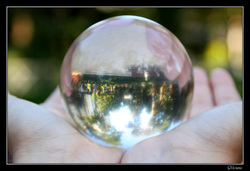 A coach once gave me an analogy I never forgot - that life is a juggling act and while most of the balls will bounce, health can be made of glass; if that ball breaks, it might never go back together quite the same. The key message? Health MUST be a priority in the juggling act we call life because of all the things we can recover from, a true health crisis can change our lives irrevocably and irreparably. Take a Lesson from the Heart - Put Your Health First Another good way to bring this message home, is to take a lesson from our own body processes - from the heart specifically. In our own bodies, the Heart actually pumps blood to itself first before it pumps blood anywhere else in the body. This is because the body knows that without proper nourishment of the Heart, everything else in the body will fail. Our lives are the same - if we don’t take care of ourselves, we cannot take care of anything or anyone else in our lives. Its imperative to put your health first, to have an eye on preventative care and stress management in particular, so that you know you are doing everything within reason in this moment in time to take care of yourself. If you can do that, you are much more likely to continue leading the long and healthy life you want to live. A Plan for Self Care that Works For YOUIf you don’t want to drop that glass ball, you’ve got to keep your eye on it, and the best way to do that is to have a plan for self care. I believe a successful self care plan needs to be simple and flexible because at different times in our lives (or even day by day) sticking to our plan can be more or less difficult. Your self care plan needs to assist and support your health, not stress you out, but you also have to be accountable to your goals to succeed in them. Having a plan can help you in all these areas. Devising your plan can be a simple exercise in assess, plan, execute. Then revise and repeat whenever necessary. STEP ONE - ASSESS You might know this right off the top of your head, but if you don’t take 5-10 minutes to make a mental tally (or physical list, your choice) of the areas you feel you are successful with your self care and the areas you feel you could improve. It should be something simple like this:
It doesn’t need to be exhaustive, but I do recommend including these categories - diet, exercise, sleep and stress. You can include as much or as little detail in these areas as you want, and you can also include any other areas you like that directly affect your health, such as self care, family time, sport, etc. If STRESS is in the “weak” list, meaning it is too high or uncontrolled, make another list like this:
Now you have a clear picture of your strongest and weakest areas. Your goal? Create a plan that will shift more into the “strong” column and the “stress reducing” columns of your lists. STEP 2 - PLAN You can be as simple or as complex as you want with your plan. The most important part is that you are devising a plan you can achieve. You can revise your plan as often as you want, so set goals you can reach in a reasonable period of time to ensure success and motivate you to keep making positive changes. For example, if Sleep and Stress are the biggest items in the “weak” column, choose these two areas to focus on and pick one or two activities that will help you improve them. Better yet, choose one activity that can help with BOTH. For Sleep + Stress there are two primary activities that come to my mind - Exercise and Acupuncture. Exercise and Acupuncture can both drastically improve sleep and stress, and if you combine the two its a magic double whammy! Schedule time for these activities as part of your plan - for example, decide that you are going to exercise 2x/week on specific regular days/times or book an acupuncture appointment once a week. To complete your plan, choose a timeline for these activities during which you are going to focus on doing them and not worry about assessment or about what comes next. For this length of time, you are just going to walk the walk. You’ll look back and see what happened later. It could be 3 weeks or 3 months, but whatever it is set it, schedule a reminder when the time is up, and forget it. Now its time to EXECUTE. STEP 3 - EXECUTE Okay, execute the plan! Some days or weeks it is going to work great, other days and weeks its going to be hard. That’s okay. Right now all you have to do is do the doing and accept that all you can do is all you can do and that’s just how it should be. REVISE AND REPEAT Once you reach the date you set to look back, take a moment to go back to step 1. Run your list again and see how you did. Did anything shift out of “weak” into “strong?” Are your plans working for you in your life or do they need to be revised? Do you just need to walk the walk a little longer on these goals or is it time to choose a new focus to get in line? I know these are a lot of questions, but they will be intuitive as you look at your list and seek to shift more items into the strong column. It will only take you a few minutes, and it will help you keep that glass ball in play as long as you can bring yourself to focus on it. You Don't Have to Go It Alone At a minimum, I recommend doing this exercise quarterly with the change in seasons - it is a natural time to assess your health and your goals. If you reach your goals quickly or want faster change you could repeat it weekly or monthly even - its totally up to you. If you look at this exercise and feel too daunted, then don’t do it alone - your friendly neighborhood Acupuncturist is an expert in preventative medicine (we have 3,000 years of clinical data behind us which supports living a healthy balanced life!) In my practice, in addition to helping my patients reach their immediate health care and pain relief goals, I always have an eye on improving my patient’s health long term. As a holistic medicine tied to the seasons and body rhythms, in my mind there’s just no other way - Acupuncture can’t treat anything without treating a little bit of everything. If you’re looking to keep your eye on the ball, Chinese Medicine has a plan to help you. If you have questions or want help devising your own plan, contact Rebecca via email anytime, or book online anytime! You can also post in the comments section and I’ll do my best to address your concerns. Until next time, ~Rebecca 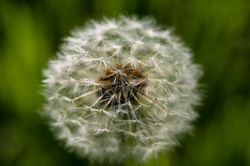 Spring is in the air - as the fragrant Daphne at my front door reminds me every day! Tomorrow, March 20th, marks the official first day of Spring 2014. Can you believe its here already? Spring is the Wood Element season in Chinese Medicine; a time for growth, change, detox, renewal and celebration of creative endeavors. For our health, Spring marks the beginning of allergy season, and the beginning of body taxing Spring cleaning projects, gardening and renewed efforts to get out and get fit as the weather warms up. The result? A number of Spring ailments such as:
If you’re suffering from any of the symptoms above or getting ready for a Spring project requiring some elbow grease, consider including Acupuncture in your health regime in the coming months both to treat and avoid common Spring ailments. Chinese Medicine is a natural medicine which is tied to the seasons - treatments in the Spring are actually different from treatments in the Fall, Winter and Summer specifically to help the body handle the environmental and energetic changes associated with the season. Acupuncture can make you healthier this Spring by:
Spring Health TipsAs the Wood Element season, Spring is also a critical time for Liver and Gallbladder health in Chinese Medicine because the Liver and Gallbladder are considered Wood element organs. That means Spring is the perfect time to detoxify the body and focus on Liver health. Also critical to Liver health? Stress and Stress management, because stress affects the energy of the Liver first and foremost. So here are some tips to help you manage the change of seasons and support the Liver and Gallbladder this Spring:
 If you’re interested in getting some help managing stress, aches, pains, allergies or just preparing the body for the change of seasons, please come in for a free consultation or appointment. You can book online anytime! Also, check out my pinterest Healthy Eating board for more detox drinks and health recipes for the season. Yours in Health, ~Rebecca #SpringHealthTips #HealthTips #AcupunctureandHealth 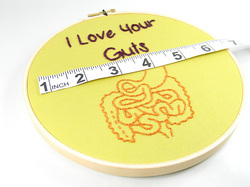 IBS or Irritable Bowel Syndrome affects approximately 15% of the US population according to recent research, though only 5-7% of the adult population has actually been diagnosed with the disease. Its a functional disorder of the Large Intestine and is typically characterized by alternating constipation and diarrhea combined with intestinal cramping, though some people will tend towards more constipation or more diarrhea depending. In summary - not fun. As someone who suffers from IBS I can tell you that it can be painful, debilitating, embarrassing and even exhausting at times. I can also tell you that there is hope, that while Western medicine does now have pharmaceutical tools to treat IBS, it doesn’t hold the only key or the only answers. Acupuncture is an incredibly powerful treatment for IBS, is completely natural, and is actually what inspired me to become an acupuncturist because of the difference it made in my life. I suffered daily bouts of cramping, constipation and diarrhea for 7 years and then tried Acupuncture. In 3 months, my symptoms were completely gone and Chinese Medicine did not require me to continue regular treatment to maintain results. It was astonishing and life changing, and is absolutely the reason I am here writing this article today. What Is IBS? What Causes IBS?The simplest definition of Irritable Bowel Syndrome or IBS is bowel irregularity including discomfort and constipation or diarrhea that lasts 3 months or more. Technically, IBS is a functional disorder of the bowel. This means that the smooth muscle of the Large Intestine is affected and cannot perform regular peristalsis or movement. Instead of a smooth squeeze along the intestines, the IBS sufferer will experience sections of the Large Intestine cramping and releasing irregularly causing discomfort and bowel pattern changes, or lack of pattern altogether. The medical criteria for diagnosing IBS (ROME 3 Criteria) is actually very simple: Recurrent abdominal pain or discomfort** at least days/month in the last months associated with two or more of the following: According to the National Institute of Health, people who have IBS experience some combination of the following IBS symptoms:
Acupuncture and IBS - IBS Treatment, IBS ManagementAcupuncture is an excellent treatment for IBS. In the short term it can calm down an acute IBS episode relieving pain, discomfort and improving bowel patterns, and long term it can be a tool for IBS management and in some cases, it can provide complete resolution of symptoms. Treatment is recommended weekly for 4-6 weeks as a starting course, though long time sufferers of IBS can require 3-6 months of regular acupuncture to create a lasting effect. When combined with herbs, diet and lifestyle changes if needed, Acupuncture can be completely transformative. A trial course of treatment along with assessment by a qualified practitioner determines how much intervention beyond acupuncture is necessary in any individual case. Chinese Medicine defines IBS by several different energetic patterns. The possibilities for individual diagnosis are quite extensive since TCM treats every individual differently, but there are three diagnoses that are more common than the rest:
The differential diagnoses above, which can be combined in some cases, determines the specific acupuncture points and herbs selected in treatment. Research shows that acupuncture and herbal treatment for IBS is quite effective - upwards of 80% of patients in some studies report improvement (Bensoussan et al. 1585-1589, 1998). Research also shows that acupuncture can virtually eliminate sympathetic nervous system response (fight or flight response) in some cases which lends credence to the validity of acupuncture to treat stress induced IBS in particular (Middlekauff et al. 399-406, 2002). Rebecca's Story I suffered from IBS for 7 years, from the age of 14 to 21. I developed an eating disorder in highschool and a combination of overeating plus excessive laxative use altered my bowel patterns permanently. Even though I resolved those behaviors and patterns by the time I started college, I continued to suffer from IBS regardless of my eating habits. I experienced pain, cramping and bloating every day and variable alternating diarrhea and constipation. It was exhausting and felt like chronic pain, like a constant background noise to my life I had to fight against to consciously do everything. I didn’t know what to eat or what not to eat and it didn’t really seem to matter - I suffered no matter how good or how bad my eating habits were. The only thing that consistently helped was exercise so I got a lot of it - 10+ hours a week of martial arts, dance, weight lifting and cardio at different times. I went to see my western physician who told me I had IBS and recommended I try to eat healthy and hope it would resolve. She offered no specific dietary advice and, luckily for me frankly, there were no pharmaceutical interventions available at the time. I was actually getting ready to go to China for a year to study overseas and I was very frightened. If I couldn’t eat “regular” food in America that I was used to without having IBS, what was I going to do in China where the water isn’t clean and the foods are fairly different? My mother had been seeing an acupuncturist since I was 9 years old, so she took me to see him during the summer before I left for China. He had a clear diagnosis for me - even though I didn’t understand what it was or what it meant - specific dietary recommendations and a clear treatment plan. He recommended weekly acupuncture and daily Chinese herbs for 3 months. After two weeks my pain was 75% resolved and my bowel patterns were almost normal. By the 3 months mark all of my IBS symptoms were completely resolved. It felt like a miracle to go from 7 years of pain and discomfort to nothing, but there it was - Chinese medicine had a diagnosis, a treatment and ultimately for me, a cure. Six years later, as I was coming to the end of grad school, my symptoms resurfaced due to stress and hormonal changes. I tried all the same things but it didn’t quite work - ultimately I learned that I had developed a Gluten intolerance (most likely due to epigenetic changes related to stress) and a soy sensitivity. Once I cut those things out of my diet, I had no further problems and I continue to enjoy regular comfortable digestion to this day. I completely have Acupuncture and Chinese Medicine to thank for my healthy digestive function. The complete resolution of my symptoms at age 21 was phenomenal, and even my later gluten and soy sensitivity revelation was due to the guidance of another LAc. That experience put me on the path that led to me becoming an Acupuncturist, and helping people with digestive disorders is one of my true passions. What do I do for IBS? Tips for Managing IBS.As a sufferer myself, I know how difficult it can be to deal with this disorder. My number one recommendation if you have IBS is to see an Acupuncturist for a thorough assessment and to follow a 1-3 month course of treatment to see if Acupuncture is the right course for you. Including that, however, here are some simple tips that can help with managing IBS:
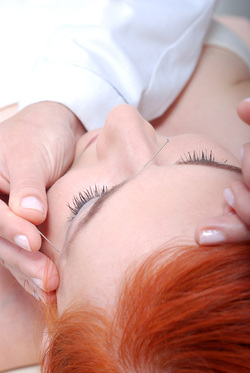 Everyone ages, we can’t help it, its the natural order of things just like the change of seasons from Winter to Spring and Summer to Fall. In Chinese Medicine aging is defined as the “natural decline of Kidney Qi” and the amount of Kidney Qi we enter the world with, or inherit, as well as they way we care for this Kidney Qi over time combine to determine how we age. Sometimes we feel like we age prematurely, especially after stressful life events. In Chinese Medicine, this is because stressful life events, which often combine with declining self-care and eating habits during those stressful events, cause us to draw from our Kidney Qi more heavily than a healthy balanced lifestyle. Life happens, we’ve all been there. Thanks to Acupuncture and Chinese Medicine, however, we have an amazing, effective and natural way to turn back the clock. Facial Rejuvenation Acupuncture, also called Facial Acupuncture or Cosmetic Acupuncture is a natural Botox alternative that can take years off the face. In some cases, up to a decade. Finer lines and wrinkles often completely disappear while deeper lines and furrows can fade to a gentle reminder of their former selves. It is completely natural and highly effective. Energetically, aging is defined as above - the natural decline of Kidney Qi - but what does this mean physically for the body? How do lines, wrinkles and furrows develop in our skin and why are some people more prone? Where Do Wrinkles Come From?Sun damage is primary factor in aging - it thins the epidermis over time and causes collagen breakdown - and the lighter your skin tone, the less natural protection you have and the more you will be subject to “photoaging” over your lifetime. Sunlight also causes free radical damage - free radicals damage the skin by activating enzymes which further break down collagen. Collagen is what gives your skin its firmness and structure, without collagen skin feels thin and cannot hold its structure as well which contributes to increase wrinkle and sag. Gravity and muscle use are two other primary factors that contribute to wrinkle patterns in particular. Not much can be done about gravity itself. Unless you never want to express emotion on your face, you’re always going to be fighting habitual muscle patters - furrows between the eyebrows, crinkling around the eyes and smile and laugh lines. Habitual facial expressions cause the skin to wrinkle and as collagen breaks down. Furthermore, as elastin is naturally lost over time, these wrinkles become permanent seeming fixtures. Without elastin your skin loses elasticity, stretch and “bounce back” ability. Facial Acupuncture as a Natural Botox AlternativeFacial Rejuvenation Acupuncture the closest thing to a natural Botox treatment that you can get. Facial Rejuvenation Acupuncture works on multiple levels to reduce lines and wrinkles and revitalize the face and complexion by:
Botox works by paralyzing your facial muscles. The synthetic botulism toxin derivative targets the nerves in the face preventing them from communicating with the muscles thus causing a “freezing” or paralytic effect. The visual effect is one of smooth wrinkle-free skin, but Botox doesn’t actually take the wrinkles away, it merely relaxes the muscles underneath the skin by inactivating them. As described above, Facial Rejuvenation Acupuncture is an incredible Botox alternative because not only does it relax the muscles in the face, it actually changes the lines and wrinkles in your skin. The effect is not as dramatic as Botox, but it is completely safe and natural, and with regular maintenance treatments after an initial series, the results can last for 3-5 years. If you’re interested in learning more feel free to come in for a free 15 minute consultation anytime! 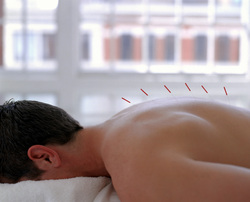 Benefits of Acupuncture Benefits of Acupuncture As a Licensed Acupuncturist with a degree in Traditional Chinese Medicine, acupuncture treatment is a central focus of my practice. One of the most common questions a new patient asks beyond “does acupuncture hurt?” and “what can acupuncture treat?” is “how can acupuncture help me?” This question is so common that today I’m going to do my best to answer it for some of the more common complaints I see in the treatment room. Its important first to realize that 3,000+ years ago, acupuncture and Chinese medicine were the only medical options available in China, and therefore they were used (and still have protocols today) to treat everything from colds to acute infections, back pain, and more. With the advent of modern medicine, it is clear that some things - especially anything that would warrant a trip to the ER - are best suited to Western medical treatment while other things are treated very successfully and naturally by Acupuncture and Traditional Chinese Medicine. Here is a short list of some of the ailments best suited to acupuncture treatment:
There’s quite a bit more, but these are most common ailments I see in my clinic. The top two complaints I see are Pain - especially Neck, Back, Knee and Auto Accident Recovery - and Women’s Health Issues. How Can Acupuncture Help My Pain?The benefits of acupuncture for pain treatment have been widely researched and show that acupuncture can cause the body to release pain-relieving endorphins and cause the brain to change the way it perceives pain by changing opiate receptor sites. Neither of these completely explain all the benefits of acupuncture, but acupuncture has received endorsement from the National Institute of Health for pain treatment. Acupuncture uses hair-thin needles strategically placed along meridians and around the site of pain or injury to balance the meridians. When we balance the energetic body, the physical body follows suit finding a physical state of balance to match the energetic one and in so doing returning the body to a pain free state. Even when meridians, or energetic channels, are treated locally, the whole meridian from its branches connecting internal organs all the way to the skin layer are affected. This means that the benefits of acupuncture are widespread - not only will acupuncture treat and resolve the pain, but it will also balance the body on a deeper level in order to maintain the pain free state. Many other things are improved as a by-product of acupuncture treatment such as enhanced immunity and stress reduction - two of the most common acupuncture side effects. This is true for any type of pain, but is especially successful in treating auto accident recovery. After even a minor car accident, your body is in a state of distress - whiplash, rib subluxation, back spasm. You can also suffer from high stress associated with dealing with the aftermath of an auto accident such as managing multiple appointments and dealing with insurance claims. Acupuncture will treat the physical pain - relaxing muscles, moving stagnation, decreasing inflammation - and also the stress and physical effects of the trauma such as insomnia and anxiety. How Can Acupuncture Benefit Women's Health Issues?The same is true in the treatment of Women’s Health Issues such as PMS, menopause and infertility. Not only can acupuncture balance hormones and reduce cramping, irritability, insomnia, hot flashes etc., but it can also help reduce the stress and anxiety associated with difficult or irregular menstrual cycles. Indeed, I’ve seen patients with Polycystic Ovarian Syndrome who haven’t had a regular cycle or unmedicated period in a decade return to normal cycles in as little as 3 months using acupuncture and herbal treatment alone. How Can Acupuncture Help Me?So the short answer to the original question, “How Can Acupuncture Help Me?” is that it can help you by balancing your meridians. This resolves both physical and energetic imbalances which can relieve pain and hormone irregularities. Common acupuncture byproducts include stress reduction and immune enhancement so acupuncture can benefit you on many levels, even ones you may not be actively seeking assistance with. Once balanced, acupuncture can help you maintain a healthy state for years to come.
If you have questions or want to know more please don’t hesitate to contact me or book a free consult anytime! ~Rebecca |
AuthorsRebecca M H Kitzerow is a Licensed Acupuncturist practicing in La Center, Washington. With over a decade of experience she has won 10 Nattie consumer choice awards from Natural Awakenings Magazine since 2014. Archives
July 2024
Categories
All
|
Photos from Hey Paul Studios, BeGreen_Studio, Pawel Pacholec, 1950sUnlimited, toulupaliaqaz, Joelk75, OnTask, Robert Gourley, cnu_sports, Mitya Ku, wuestenigel (CC BY 2.0), FootMassagez, 401(K) 2013, Mariana Heinz, @EdwardTerry, fishhawk, liverpoolhls, torbakhopper, Boemski, dolomitibl, Driscolltheque, Dave n Laura, Vaping360, MVWorks, Life Mental Health, MVWorks, mikefats, Scot Nelson, jfl1066, wZa HK, ruurmo, Guadalupe Cervilla, Army Medicine, GViciano, torbakhopper, adrigu, Saulo Cruz, Ben Cumming, marniejoyce, kcxd, JasonCorey, kanenas.net, Live to Create Photography, gm.esthermax, Unique Hotels Group, Zenspa1, mysiana, Tobias Lindman, Leader Nancy Pelosi, Kristoffer Trolle, swanksalot, Bill Selak, Parker Knight, stimpsonjake, Gedankensprudler, SuperFantastic, tonynetone, marniejoyce, JeepersMedia, Illusive Photography, 'Ajnagraphy', Iban Torras, scotted400, gtall1, dvanzuijlekom, BPPrice, Skley, torbakhopper, Renato Ganoza, anka.albrecht, QUOI Media, Public Domain Photos, Instant Vantage, Victor Tongdee, Free Grunge Textures - www.freestock.ca, sportEX journals, Nadja Tatar, angela n., marniejoyce, MVWorks, Karolina Kabat, Thomas Fisher Rare Book Library, UofT, ginnerobot, tracilawson, haven't the slightest, My Photo Journeys, Pierre Willemin, Florena_Presse, SuperFantastic, colindunn, zzkt, TraumaAndDissociation, ER24 EMS (Pty) Ltd., shixart1985 (CC BY 2.0), marniejoyce, Tomás Fano, freestock.ca ♡ dare to share beauty, Archives New Zealand, Jaykhuang, airdrie.m, Go-tea 郭天, OnTask, wuestenigel, focusonmore.com, Disney | ABC Television Group, Andrew Gustar, Didriks, ConstructionDealMkting, charlywkarl, barnimages.com, Lel4nd, runwaypilates, michaelstephanfotografie, McLevn, TraumaAndDissociation, eLife - the journal, Lars Plougmann, wuestenigel, shixart1985, boviate, davis.steve32, kevin dooley, @the.photoguy (insta), frederic.gombert, Feathering the Nest, Victor Tondee, shixart1985, wuestenigel, Joe K Gage, kennethkonica
 RSS Feed
RSS Feed
